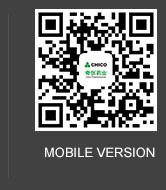



An Unexpected Blockbuster of the Gleevec|20127-57-1|Imatinib mesylate.jpg)
Gleevec is a targeted tyrosine kinase inhibitor (TKI) that treats chronic myeloid leukemia (CML) and gastrointestinal stromal tumors (GIST). It was approved in the US in 2001 and revolutionized CML treatment.
It's hard to imagine that only twenty years ago, kinases were considered "undruggable". The biggest problem in many kinase programs today is finding novel inhibitors, since so many groups have successfully patented inhibitors of the highly-conserved ATP-binding domain. But pre-Gleevec, the worry was kinase inhibitors would be toxic because it would be impossible to target only one. Achieving low drug doses would also be difficult because of the high concentrations of intracellular ATP. Even if you could find the perfect drug, it was unclear if knocking out a single kinase would really affect a disease, given the complexity of the signalling networks kinases are embedded within. Finally, the only indications that would tolerate the expected small window for efficacy over toxicity were cancers - so unless you basically cured a cancer, there was unlikely to be a market for your drug. (Indeed, the vast majority of clinical kinase inhibitors are approved in cancer: (Hantschel, O. ACS Chem. Biol. 2015, 10, 234-245.) Don't get me wrong — these are valid concerns. Demonstrating selectivity, safety, potency, and efficacy with new kinase inhibitors is still hard. It's just that Gleevec's success was proof it could be done, and inspired teams targeting kinases and other challenging targets. Now that imatinib is finally going generic, it's a great time to reflect on the value it's created so far in its lifecycle, and remember why we should go after what's hard.
Imatinib and second-generation tyrosine kinase inhibitors like dasatinib and nilotinib have clearly made a tremendous impact in the lives of hundreds of thousands of patients and their families. But one question that nearly killed the program from the outset was, would a therapy for such a small subset new cancers per year (~5000) ever be able to return the cost of its development if it turned out to work? This continues to be a serious question for all new targeted therapy programs, but we at least know in retrospect that for tyrosine kinase inhibitors like Gleevec, the answer is a resounding yes. The graph below shows the net sales of Gleevec and 2nd-generation TKIs by year, compiled from Novartis and Bristol-Myers Squibb's annual reports. In its first two years on the market alone, Gleevec returned net sales of >$1 billion. Sales continued to grow year on year, reaching a peak of >$4.6 billion net sales by 2012. This speaks to the tremendous value created by an agent which has effectively cured a cancer. What other industry could claim a feat like this?
Here are some sales figures for Gleevec (imatinib mesylate):
Gleevec's sales have declined since the patent for the drug expired in 2015, allowing a generic version to be sold in the US.
2015: Gleevec's global sales were $4.66 billion, with $2.5 billion coming from the US
2016: Gleevec was among the top 10 cancer products in the US, generating around $1.2 billion in revenue
2023: Gleevec's net sales were $561 million, a 25% decrease
Imatinib finally went off-patent in 2015, and Gleevec's net sales have slumped since. But in total, Gleevec returned a cumulative $51 billion in net sales (nominal), and saved countless lives and hospitalizations in the process. Second generation tyrosine kinase inhibitors like Sprycel (dasatinib) and Tasigna (nilotinib), which are active against imatinib-resistant CML, have generated an additional ~$20 billion in net sales. Note that while the patent protection for all of these drugs and hence the revenue streams from these drugs will be expiring, a functional cure for chronic myeloid leukemia exists forever.
220127-57-1
Imatinib mesylate (chemical grade, purity ≥99.0%) are currently supplied by our company. [Own compliance factory, fully support factory audit] For details, you can call the bottom line to get the latest price of the product!
Disclaimer:Products are only available to countries where there is no valid patent protection. Products still covered by patents rights are available exclusively for experimental or registration purpose pursuant to national applicable law, and shall be sold in strict accordance with the laws of the People's Republic of China and the laws of the Buyer's country. All products are not for human use. Buyer is obligated for evaluation of the patent situation in its domestic market and shall be held liable for uses which do not fall within the scope of the experimental or registration use exception and are not permitted by national applicable law.




International Department:

Copyright(C)2018 Anqing Chico Pharmaceutical Co., Ltd.
Supported byChinaChemNet
